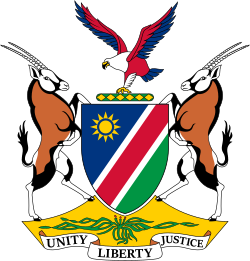 |
|---|
Namibia is a dominant-party state with the South-West Africa People's Organisation in power. Opposition parties are allowed, but are widely considered to have no real chance of gaining power. In Namibian politics, ethnicity plays a significant role in party affiliation and voting behaviour. Some parties are dominated by single ethnic groups; SWAPO itself, its government, and administration, is pre-dominantly Ovambo. [1]